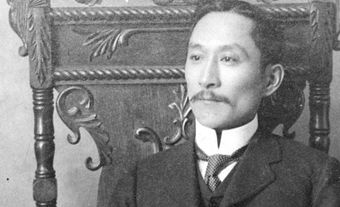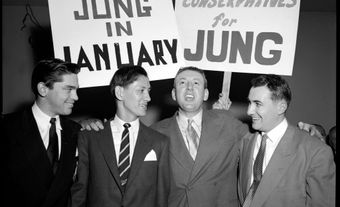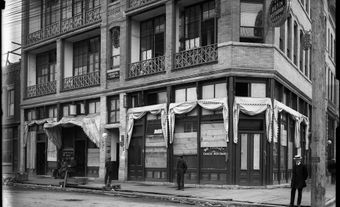Margaret Jean Gee, lawyer (born 10 December 1927 in Vancouver, BC; died there 17 July 1995). Gee was the first Canadian woman of Chinese descent to be admitted to the bar in British Columbia.
Early Years
Margaret Jean Gee was born to Chinese immigrants who operated a bookstore. She was the only daughter in a family of six. She attended school in Vancouver and grew up in the city’s Chinatown during the Exclusion Era of 1923–1947. (See Chinese Immigration Act.) During this period, Chinese immigrants were barred from entering Canada. Chinese people in Canada were also denied many civil rights. (See Civil Liberties.) Chinese residents could not vote in elections (see Right to Vote) and were not allowed to freely move in and out of the country. Chinese-Canadians were also excluded from certain professions including law. Legal discrimination alongside Canadian society’s explicit anti-Chinese racism marginalized the Chinese community. (See also Racial Segregation of Asian Canadians.) Despite all of this, Margaret Jean Gee’s ambitions were not deterred.
Law School
The Law Society of British Columbia eventually lifted the restrictions that barred Chinese-Canadians from the legal profession. Margaret Jean Gee took advantage of this and enrolled in law school at the University of British Columbia. Her decision to depart from what was considered the traditional place of women bewildered her community’s older generation. That said, they nonetheless wished her well and encouraged her to excel.
Gee said she wanted to use the law as a means of helping the underdog. She dreamt of one day saving a life in court by appealing to the jury using her own words (Canada still had the death penalty at the time). Moreover, she wanted a way to help her own community.
Legacy of Firsts
In 1953, Margaret Jean Gee became the first woman of Chinese descent to graduate in law at the University of British Columbia. The following year, she became the first Chinese-Canadian woman to be called to the bar in British Columbia.
In an interview with the Vancouver Sun she said: “I will never forget the words of Mr. Justice Farris when I was called to the bar. He told us that though we had certain privileges we also have obligations … I am a Canadian and I hope to play my part in preserving the democracy through our great courts of law.”
In August 1955, Gee became the first Chinese-Canadian woman to begin her own law practice when she opened her own office in Vancouver. She also worked for another lawyer called Thomas Hurley on a bank robbery case.
Road to Acceptance
Even for educated, Canadian-born Chinese people, succeeding in Canada could nonetheless be difficult. This was especially the case in British Columbia where anti-Chinese racism was endemic. In a CBC news story in 1957, Margaret Jean Gee mentioned the racism that she experienced in school, university and in her private law practice. She noted that she had been fortunate because such incidents had been relatively rare. Moreover, in an interview with the Vancouver Province, Gee expressed gratitude for the kindness shown to her by older members of the legal profession. This was likely an indication that old prejudices were dying away. Gee was a pioneer as a female lawyer, being one of very few women in the profession in North America at that time. She said that she liked being called a “lady lawyer.”
During an interview with the Globe and Mail, she was asked if most of her clients came from the Chinese community. Gee replied, “Strangely enough, most of them so far have been Occidentals. People expect me to have Chinese clients, but it doesn’t work that way.”
After a trailblazing career, Gee retired from her legal practise in 1981. In her personal life, Gee lived with her partner, Robert Wah Jew Lee — a former member of Force 136. They did not have any children, nor did they officially marry.

 Share on Facebook
Share on Facebook Share on X
Share on X Share by Email
Share by Email Share on Google Classroom
Share on Google Classroom



